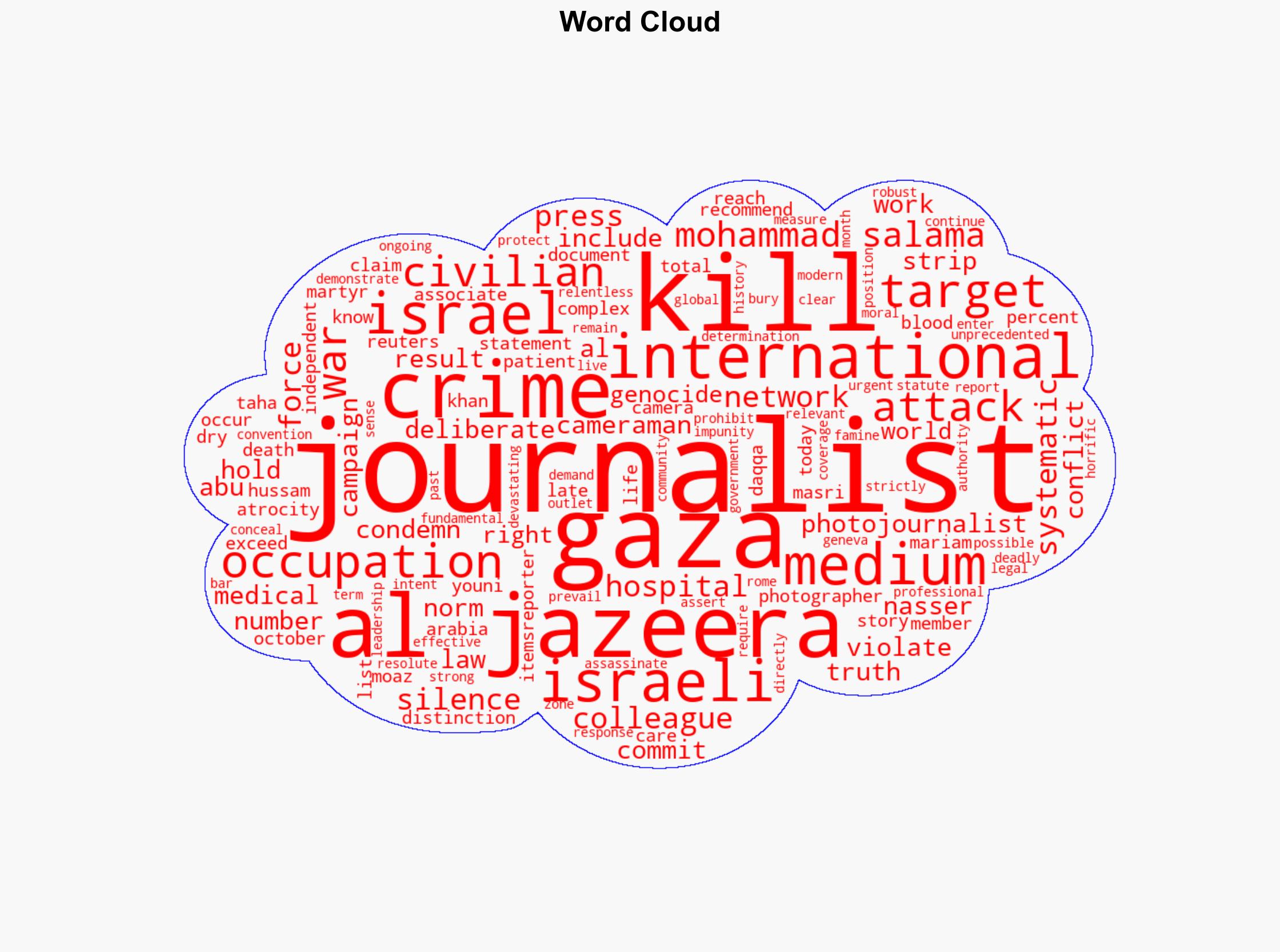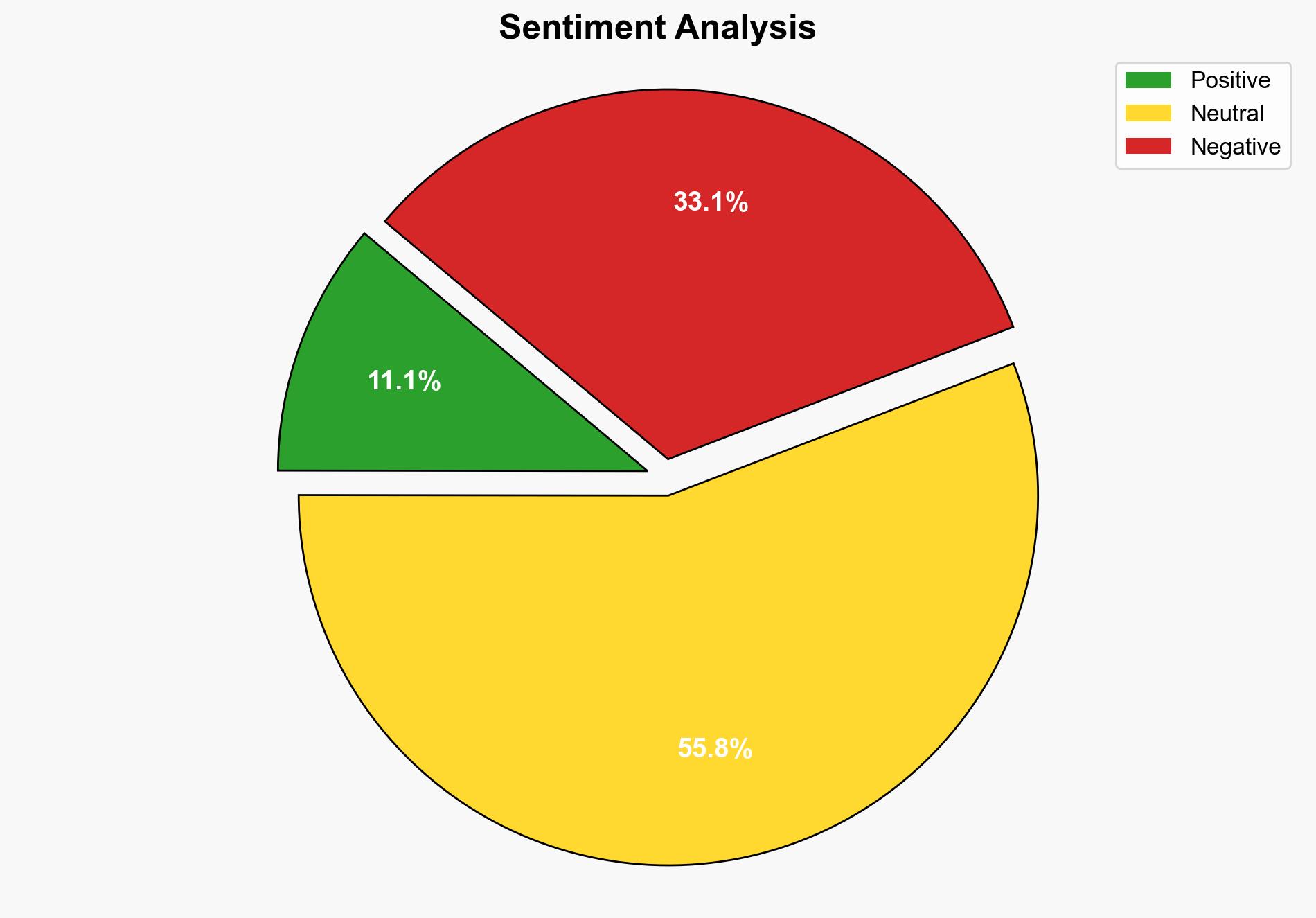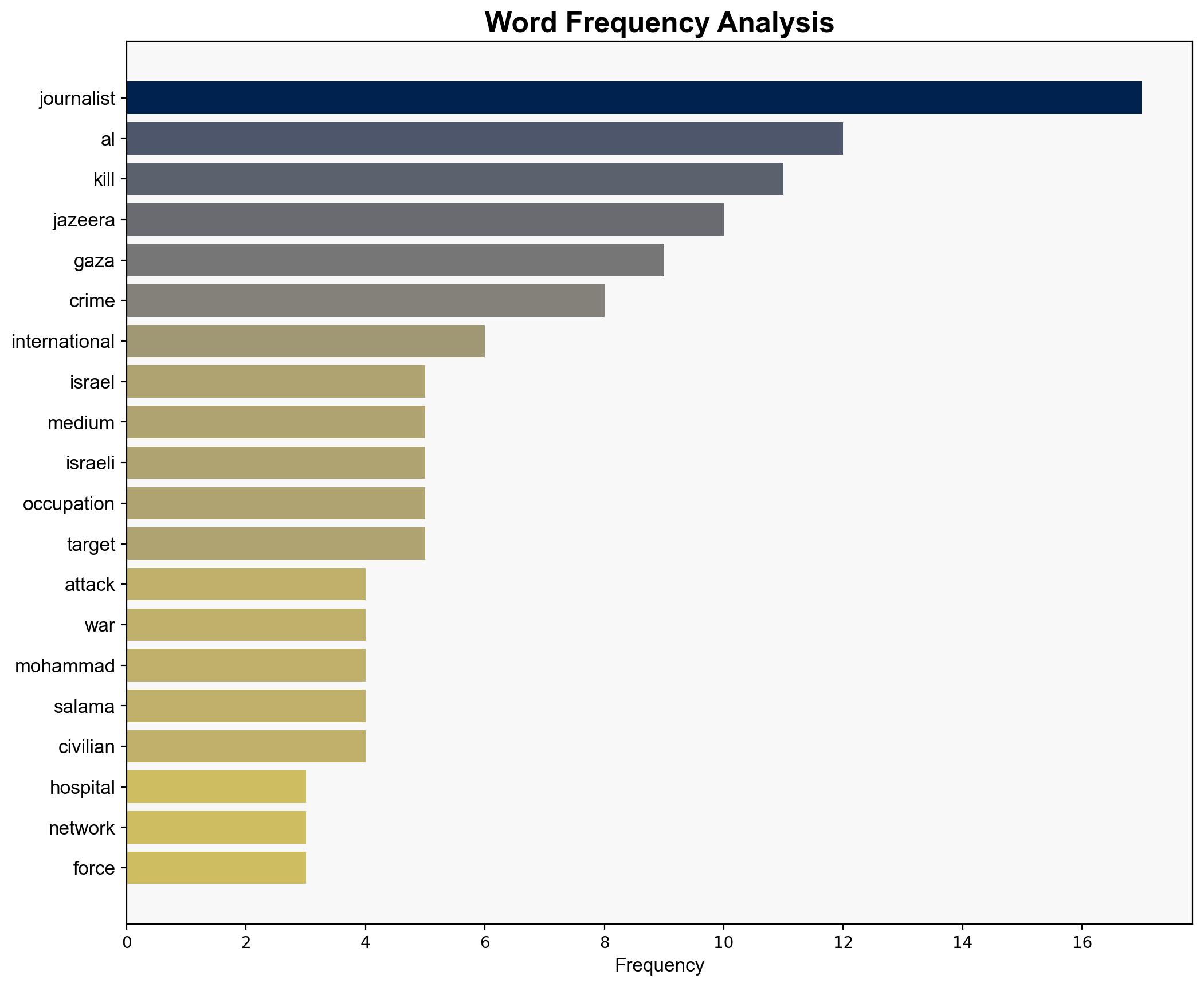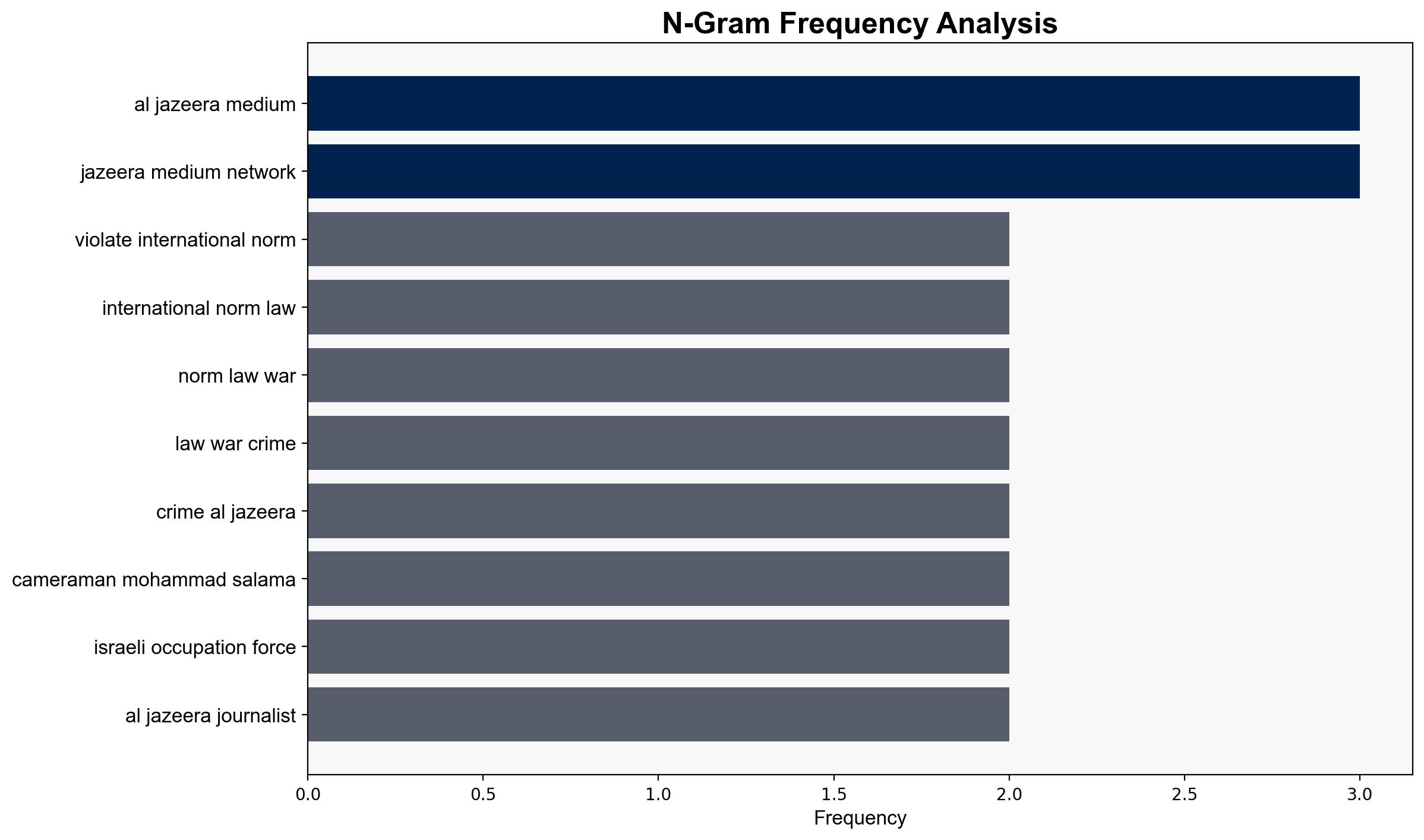Al Jazeera condemns Israels killing of its journalist in Gaza – Al Jazeera English
Published on: 2025-08-25
Intelligence Report: Al Jazeera condemns Israels killing of its journalist in Gaza – Al Jazeera English
1. BLUF (Bottom Line Up Front)
The most supported hypothesis is that the targeting of journalists in Gaza by Israeli forces is a deliberate strategy to suppress media coverage of the conflict. This conclusion is drawn with a moderate confidence level due to the consistent pattern of journalist casualties and the context provided by Al Jazeera. Recommended action includes advocating for international pressure on Israel to adhere to international laws protecting journalists and civilians in conflict zones.
2. Competing Hypotheses
1. **Deliberate Targeting Hypothesis**: Israeli forces are intentionally targeting journalists in Gaza to suppress media coverage and control the narrative of the conflict. This is supported by the repeated incidents of journalist casualties and Al Jazeera’s assertion of a systematic campaign.
2. **Collateral Damage Hypothesis**: The deaths of journalists are unintended consequences of military operations in a densely populated conflict zone. This hypothesis considers the chaotic nature of warfare and the potential for misidentification or miscalculation during military engagements.
Using ACH 2.0, the Deliberate Targeting Hypothesis is better supported due to the pattern of incidents and the specific targeting of media personnel, as reported by multiple sources.
3. Key Assumptions and Red Flags
– **Assumptions**: The Deliberate Targeting Hypothesis assumes a level of control and intent by Israeli forces that may not be fully substantiated by available evidence. The Collateral Damage Hypothesis assumes that all casualties are unintentional, which may overlook patterns of behavior.
– **Red Flags**: The strong language used by Al Jazeera may indicate bias, and the lack of independent verification of claims raises questions about the completeness of the narrative.
– **Blind Spots**: Limited access to independent media in Gaza restricts the ability to verify claims and assess the situation comprehensively.
4. Implications and Strategic Risks
– **Geopolitical Risks**: Continued targeting of journalists could escalate international condemnation and strain Israel’s diplomatic relations, particularly with countries emphasizing press freedom.
– **Psychological Impact**: The targeting of journalists may deter media coverage, impacting global awareness and understanding of the conflict.
– **Potential Escalation**: Increased international pressure could lead to retaliatory measures or changes in military tactics by Israel, affecting regional stability.
5. Recommendations and Outlook
- Encourage international organizations to conduct independent investigations into journalist casualties in conflict zones.
- Advocate for stronger enforcement of international laws protecting journalists and civilians.
- Scenario Projections:
- **Best Case**: International pressure leads to improved protections for journalists and reduced casualties.
- **Worst Case**: Continued targeting results in severe international backlash and potential sanctions against Israel.
- **Most Likely**: Incremental improvements in journalist safety with ongoing international advocacy efforts.
6. Key Individuals and Entities
– Mohammad Salama
– Hussam Al Masri
– Mariam Abu Daqqa
– Moaz Abu Taha
7. Thematic Tags
national security threats, press freedom, international law, conflict zones, media suppression




